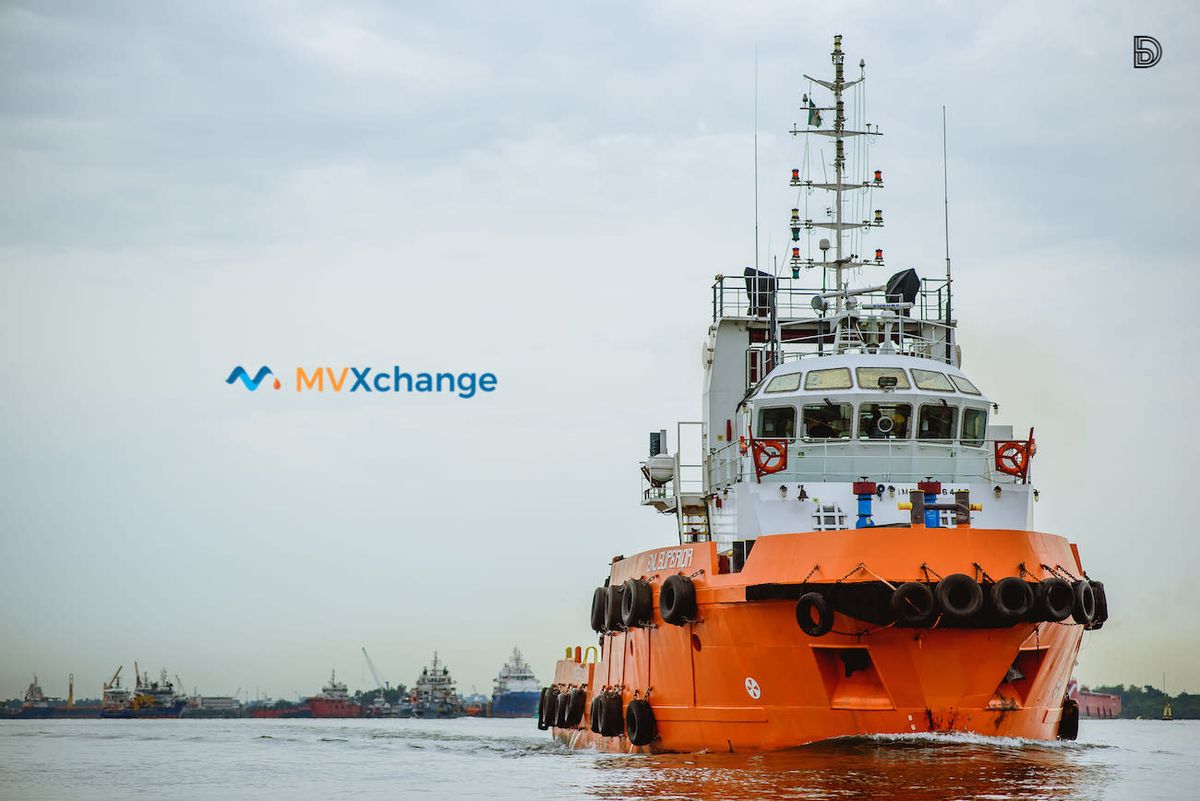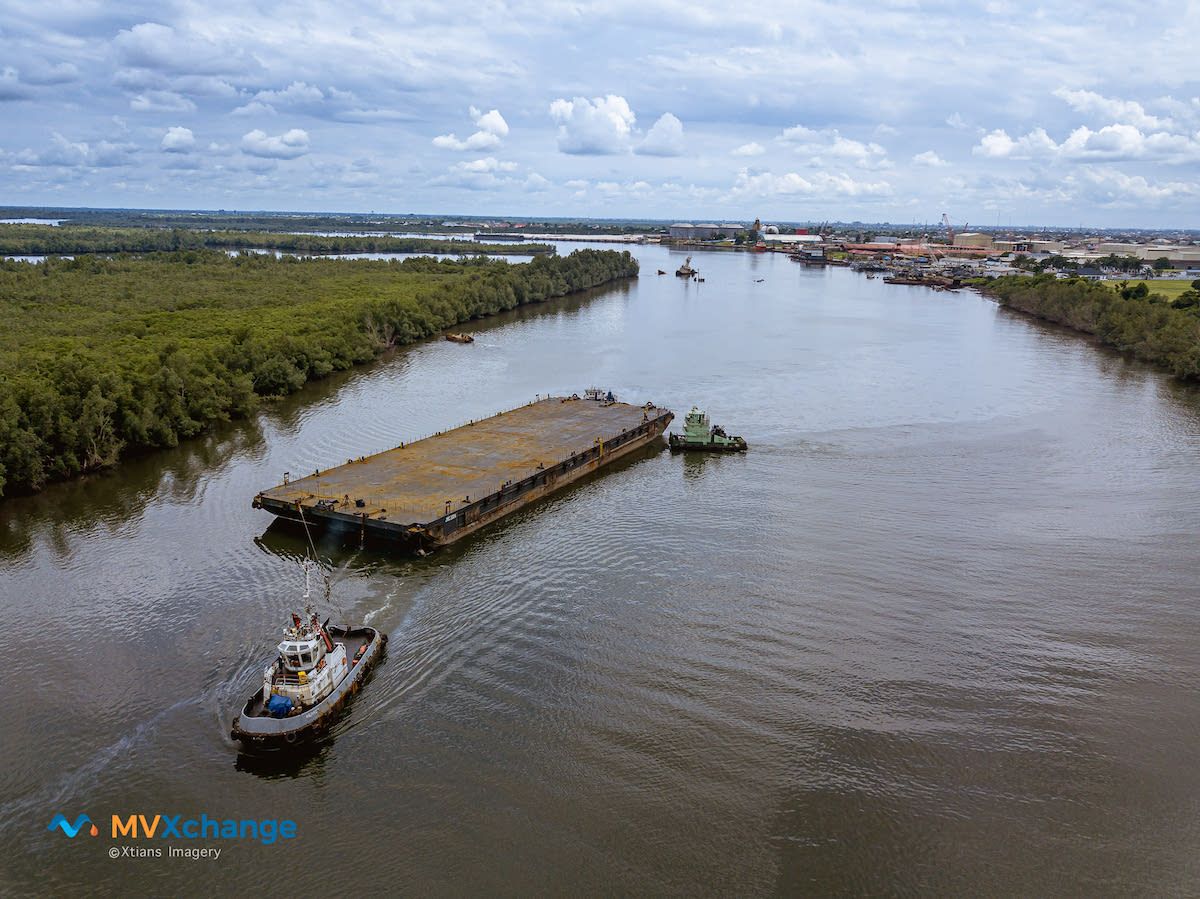Early-stage Maritime startup, MVXchange set to build the future of Offshore Support Vessels chartering in Africa
Nigerian Maritime startup, MVXchange is on a mission to build the future of Offshore Support Vessels (OSV) chartering in Africa, announces pre-seed round close.

MVXchange is a maritime startup offering on-demand vessel chartering services to businesses.
On Monday, May 27, Oui Capital announced their pre-seed investment of $100,000 in MVXchange. Although the round was led by the Africa-focused US-based venture-capital firm—Oui Capital, it saw participation from Neon Ventures, Zircon marine, and other angel investors.
Despite my three-plus-years of experience reporting on and consuming Nigerian tech news, I have never seen a maritime tech startup on my radar. Yet, Nigeria generates over ₦10 billion ($27.8 million) in the maritime industry daily, more than the prevailing betting industry. In 2018, the Nigerian Maritime Administration and Safety Agency (NIMASA) estimated the country's total annual freight cost to be between ₦1.8 trillion ($5 billion) and ₦2.2 trillion ($6 billion). This industry neglect is so bad that it is not even captured in the nation’s GDP as reported by the National Bureau of Statistics (NBS).
Hence, the challenges plaquing the industry sometimes go unnoticed. The challenges include inefficient ports infrastructure, lack of transparency and a deficit in maritime infrastructure. As a result, the industry loses some of its projected revenue. More granularly, private sector players encounter numerous middlemen, a delay in finding vessels, irregular vessel rates and unprofessionalism in the chartering process.

According to the Nigeria Content Development Monitoring Board (NCDMB), total industry spend on marine vessels in Nigeria was $3.05 billion over the four-year period starting 2014.
Attempting to solve the above-listed problem and get into a massive market is what led to the birth of Motor Vessel Charter (MVCharter), now Motor Vessel Xchange (MVXchange), says Founder and CEO—Tonye Membere-Otaji in a chat with benjamindada.com.
MVXchange's approach is not unknown to the tech world—creation of an on-demand platform, like Uber. In fact, they refer to themselves as an "Uber for Offshore Vessels".
It was originally MVCharter and was born out of frustration from finding offshore support vessels at my role and job at the time. The chains of middlemen, delay in finding vessels, high vessel rates because of markups and generally the inefficiency and unprofessionalism in the chartering process led to the birth of MVX. I spoke to quite a number of professionals in the oil and gas industry and discovered we all shared the same frustrations.
Before founding MVXchange, Tonye had worked for 4 years at an energy, oil and gas firm, Elshcon. The last role he held at the company was that of Strategy and Innovation Management. So, if anyone would have paid attention to aspects of the business where tech could leapfrog, it should be him. During his time at the company, he shuttled between Port Harcourt and Lagos, so he was able to get a firsthand understanding of the operations and business aspect of things.
"We are building the future of OffShore Support Vessels (OSV) chartering in Africa by reducing inefficiencies, increasing capacity and utilisation of vessels across African waters", Tonye said in a statement to benjamindada.com.
"Our platform matches vessel charter requests directly to vessel/ship owners. Thereby, reducing the time it takes to find a vessel from weeks to minutes", he adds.
The supply and demand side of his business are vessel owners (supply side) and vessel charterers (demand side) in the oil and gas industry. So, typically—Rig movers, IRM (Inspection, Repair & Maintenance) contractors, EPCI (Engineering, Procurement, Construction and Installation) companies and International Oil Companies (IOCs) like ExxonMobil are his potential clients.

As expected, adoption has been positive. "We have achieved 60 charter requests, 3 successful vessel charters and over 40 charter days in about 3 months of starting proper operations", says Tonye.
Speaking about their plans for future, Mr Membere-Otaji says "Our key short term goal is to exceed our successful vessel charter target and gain the trust of users and the maritime/oil and gas industry at large".
The funding will be directed towards scaling their technology and acquiring more
enterprise users. "Oui is fantastic. We’re happy to be working with our early investors. Their wealth of experience and network is a plus for us and we are excited to welcome them onboard", says Mr Membere-Otaji.
The company’s current target market is oil-producing African countries as they look to match vessel availability with vessel utilisation at the optimal market rate in these regions. "We plan to expand across Africa especially Ghana, Angola and Senegal in the medium term", says Tonye.
CEO Tonye believes that if given sufficient attention, the maritime industry can aid Nigeria's economic growth. "Our long term audacious goal is to impact the African blue economy; it’s one of the ways we can achieve true ocean sustainability and economic growth in Africa", he added.
Speaking about their investment decision in MVXchange, Olu Oyinsan—Managing Partner, Oui Capital told benjamindada.com that "That they are playing in a huge market ripe for disruption, not only in Africa but in Asia-Pacific".
The Offshore Supply Vessel (OSV) market currently valued at $15 billion, is expected to nearly double ($25 billion) by 2023 and West Africa accounts for a whopping 15% of the global market share. Truly, if MVXchange gets it right, they might be up to something.
We expect more maritime startups to follow suit over the next couple of years.







Comments ()